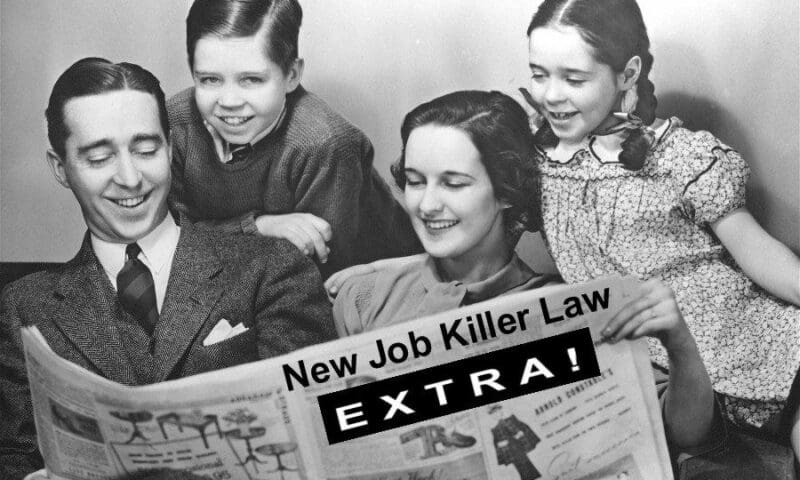
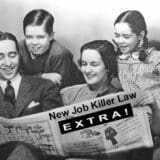
(Editor’s Note: The following executive summary comes from a study partly funded by the Public Welfare Foundation and the Ford Foundation, and is used by permission.)
An independent study released by two prominent scholars found that number of news stories with “job killer” allegations have increased by 1,156 percent between the first three years of the George W. Bush administration and the first three years of the Obama administration.
The study, “Job Killers” in the News: Allegations without Verification, by Professors Peter Dreier of Occidental College and Christopher R. Martin of the University of Northern Iowa, revealed that the “job killer” allegations came most often from Republican and business group sources, and were targeted at policies to safeguard consumers, protect the environment, raise wages, expand health insurance coverage, increase taxes on the wealthy, and make workplaces safer.
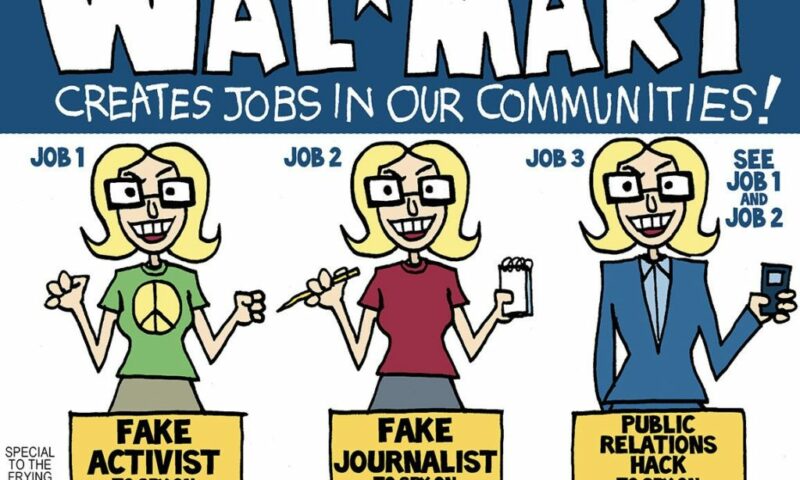
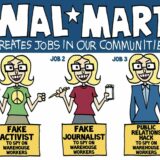
» Read more about: Lalo Alcaraz on Walmart's Fakes and Hacks »
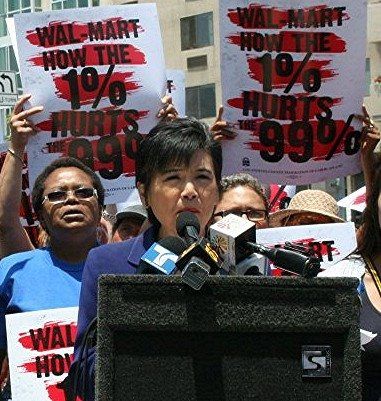

While most media attention this week concerning Walmart’s L.A. expansion plans has understandably focused on the cloak-and-dagger shenanigans of self-confessed corporate spy Stephanie Harnett, the mounting local opposition to Walmart has taken on serious political overtones. At the same news conference at which Secret Agent Harnett revealed her identity, Congresswoman Judy Chu vowed to refuse Walmart campaign contributions and encouraged her colleagues to do the same.
“I have never accepted a dollar of Walmart money and I will never take Walmart money,” Chu told a gathering of reporters on Wednesday. “I call on all Los Angeles elected officials not to take Walmart’s money — and to give it back if they’ve accepted those contributions in the past.”
The June 13 event was held across the street from the Chinatown location where Walmart hopes to open a 33,000-square-foot grocery store. Walmart’s dream is the nightmare of local businesses and Chinatown community leaders,
» Read more about: Judy Chu Tells Politicians: Don't Take Walmart's Money »


This may be organized labor’s summer of discontent, but don’t tell that to the folks at L.A. Labor 411. The communications group, which for the past five years has supplied Angelenos with directories listing more than 3,000 unionized businesses, goods and services, has been busy compiling socially conscious drinking recipes (mojitos ahoy!), products and venues for those who imbibe. They call one of their standouts the Union Made Long Island Iced Tea – although I’ll bet that Back East it might be known as the Last Exit toBrooklyn. All its ingredients are processed or manufactured by companies where workers enjoy the wage, health-care and vacation benefits of union representation.
Dale DeGroff, the “King of Cocktails” who mixed many a L.I. Iced Tea at New York’s Rainbow Room, places the drink’s birthplace at the Old Beach Inn in Hampton Bays.


(Update, June 17: A United Teachers L.A. bulletin has announced the 58-42 percent membership approval of the agreement discussed below.)
My neighbor Rena found her life’s work at the age of 50. Today, 10 years later, she could lose that work and her profession teaching English as a second language.Thousands of teachers in L.A. this week are voting on a proposed agreement to reduce their own pay in order to save adult and early childhood education programs, teacher-librarians, counselors and nurses, and to reduce class sizes. It’s a deal that would make most of us blanch – threaten our own family’s economic health for the common good? No thanks.
In fact, by refusing to raise property and other taxes in California, we’ve essentially left it to the teachers to volunteer for the sacrifices the rest of us are not willing to make for the welfare of our state’s public school children.


On Wednesday, June 13, Caroline, an organizer at a downtown press conference held by opponents of a proposed Chinatown Walmart store, noticed a young woman chatting to reporters. She’d seen her exactly one week before at another news conference. There, the young woman introduced herself as Zoe Mitchell, said she was a student at the University of Southern California and, somewhat vaguely, mentioned that she was interested in writing human interest stories.
At the June 6 event, Mitchell seemed sympathetic to the cause of workers who had a long list of complaints against the Walmart-contracted warehouses they worked in. And she had a request – could she talk to some of these workers who spoke English and record their names and stories?
Caroline was happy to accommodate the student and hooked her up with a lengthy interview with the worker present who spoke English.


 Who is the woman seen in this photograph talking on a cell phone? Last week she claimed to be “Zoe Mitchell,” a young student at USC interested in the terrible and illegal conditions found inside warehouses that move goods for Walmart. She told warehouse workers she was a journalist interested in their plight. (See her business card and last week’s event sign-in information below. Click to enlarge the image.)
Who is the woman seen in this photograph talking on a cell phone? Last week she claimed to be “Zoe Mitchell,” a young student at USC interested in the terrible and illegal conditions found inside warehouses that move goods for Walmart. She told warehouse workers she was a journalist interested in their plight. (See her business card and last week’s event sign-in information below. Click to enlarge the image.)
Today, while gathering information at a news conference held by community and labor groups opposed to the retail giant’s entry into Chinatown, she let her true identity slip. “Zoe Mitchell” is completely fictional. Zoe is actually Stephanie Harnett, a fake “reporter” working for Walmart — more precisely, a senior associate at Mercury, a giant PR firm that represents a wide range of corporate interests. Mercury says it is about “high stakes public strategy” and boasts that it is especially adept at “Latino Communications.”
The big question is,


It’s a strange feeling to recognize someone not by his or her face, but by their name-tag. This was the experience I had in Providence, Rhode Island this past week, where I attended the annual Netroots Nation conference for progressives on behalf of my union, UNITE HERE Local 11. It was good to finally match up the tweets to all these faces that I had been in touch with for the past year.
I arrived at the conference later than most of my UNITE HERE comrades because of my work schedule and a delayed flight. One of the moments that I was sad to have missed was when hotel workers from the Providence Westin came onstage and thanked the Netroots organization for moving its 2010 conference from their hotel due to a contract dispute with the Westin over wage cuts, slashes in vacation and the elimination of union jobs for subcontracted ones.
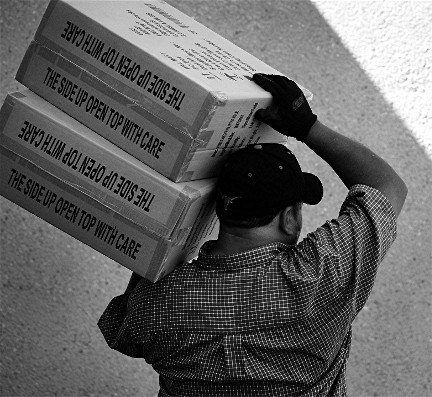

(The following post first appeared on the California Labor Federation’s Labor’s Edge site.)
We knew it was bad, but we didn’t know it was this bad.
Walmart has an outsized influence on Southern California – on multiple sectors, on tens of thousands of jobs and even on our environment. In the new report Chain of Greed, the well-respected National Employment Law Project documents the giant retailers’ negative impact on our region and details conditions inside Walmart-contracted warehouses. This is what NELP found:
Jesus Sauceda,
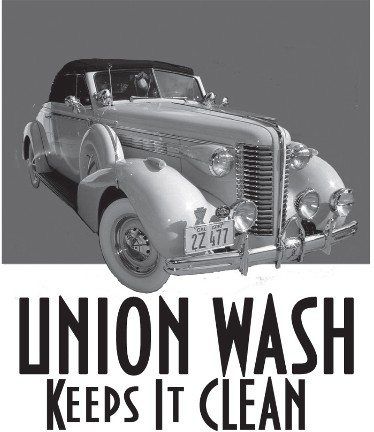

After a year-long campaign by labor and community groups on behalf of carwasheros in what is traditionally a progressive town, the City of Santa Monica will no longer contract with car-wash businesses that are not in compliance with federal and state employment laws.
In addition to strict implementation by the city’s Finance Department of existing policies that require those receiving City dollars to comply with laws, the Santa Monica City Attorney’s office will investigate practices at all four car washes located in Santa Monica as part of its Consumer Affairs operations.
Rather than employ public workers to wash city trucks, police cars and other vehicles, Santa Monica, like many other cities, contracts with local car washes to keep its vehicles clean. After California’s Attorney General reached a settlement with Bonus Car Wash in Santa Monica that resulted in the business agreeing to a contract with the United Steelworkers Union,
» Read more about: Santa Monica: Car Wash Businesses Must Come Clean »
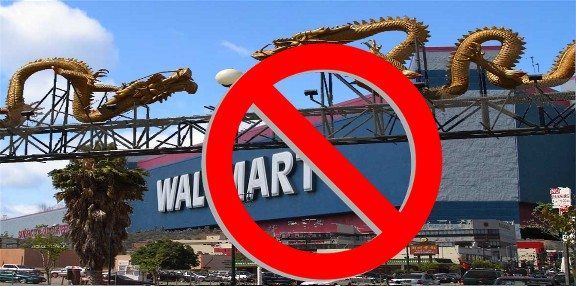

Wednesday, June 13, near the very spot where Walmart hopes to establish a beachhead in central Los Angeles, labor, community and political leaders will put the retail giant on notice that it can forget about getting the red carpet treatment. The company’s plans to open an express store selling groceries in Chinatown have provoked widespread opposition that goes beyond mere irritation over the arrival of a corporate megachain.
As Frying Pan News has documented, Walmart typically has a blighting effect on the communities where it locates: Local stores go out of business and the retailer’s workers, who lack decent wages and medical coverage, must rely on for public assistance in the form of food stamps and emergency room visits.
But it is mostly the dismal working conditions of employees at Walmart and its suppliers that is fueling resistance to the company’s expansion. Only yesterday foreign guest workers employed by a Louisiana seafood supplier to Walmart went on strike against what they say are long,
» Read more about: Largest Anti-Walmart Rally Ever to Be Announced »
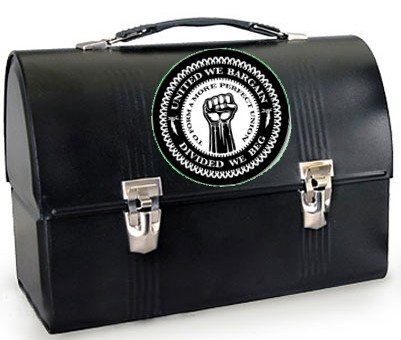

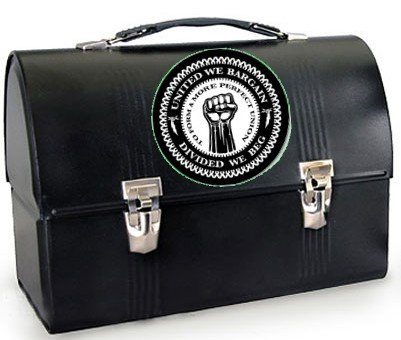 The fallout from the failed bid to unseat Wisconsin Governor Scott Walker, along with election victories to curtail public-employee pensions in San Diego and San Jose, continues for organized labor. While a number of media stories have questioned the strategic wisdom of trying to unseat a sitting governor who had not been accused of criminal wrongdoing, many moderate and progressive writers have been thinking aloud about something more fundamental – the very existence of unions.
The fallout from the failed bid to unseat Wisconsin Governor Scott Walker, along with election victories to curtail public-employee pensions in San Diego and San Jose, continues for organized labor. While a number of media stories have questioned the strategic wisdom of trying to unseat a sitting governor who had not been accused of criminal wrongdoing, many moderate and progressive writers have been thinking aloud about something more fundamental – the very existence of unions.
“These votes,” the Atlantic.com’s Derek Thompson writes, “didn’t announce a new trend. They reminded us of a very old one.” His post’s title asks the disturbing question, “Are Unions Necessary?” It turns out he doesn’t have an answer. After we follow a recap of the long, slow decline of labor over the past half century, and some scary line graphs comparing plummeting union membership numbers with the fall of middle-class incomes,
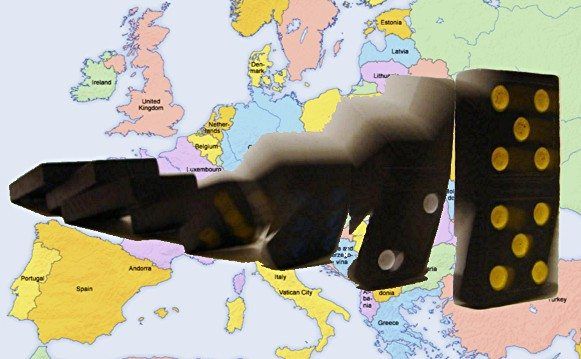

There’s no pleasing stock traders. No sooner had European financial ministers granted Spain’s banks a $125 billion bailout than investors began worrying about Italy’s ability to pay its national debt – and to pitch in to save Spain. According to The New York Times, “[b]ecause Italy does not have enough economic growth to generate the money itself, the government will probably have to borrow it at high interest rates, adding to an already heavy debt load.” The Times on Monday quoted Italian Prime Minister Mario Monti’s pessimism: “There is a permanent risk of contagion.”
Although the mention of a European economic plague certainly makes ears stand up, the continent’s continual financial woes more resemble a Möbius strip of dominoes. With each new agreement to save one of the Mediterranean PIGS (Portugal, Italy, Greece, Spain), a new panic spreads on the floors of Europe’s stock exchanges.
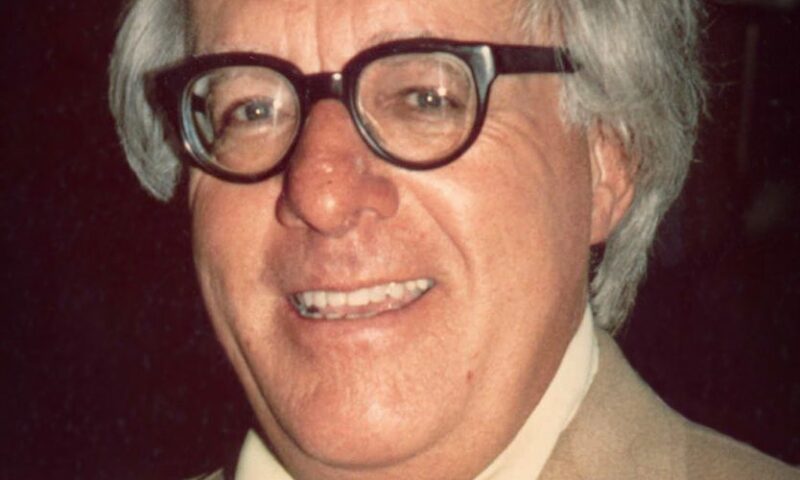

Much was made in Ray Bradbury’s obits last week of his paradoxical nature: He was a science fiction writer who never drove a car or used a computer, a seer who looked to the past to describe the future. All of which was true – Bradbury was one of the few authors who could make a trip to the next century seem like a sentimental journey. The reason is that so much of his Tomorrowland was really mid-20th Century America dressed up in a space suit and relocated to Mars. The Midwestern front porch on a summer evening, lit by fireflies and the murmur of conversation, was as key to Bradbury’s fictional worlds as rocket ships and robots.
In fact, Bradbury is too often typecast as a science fiction writer – after all, he wrote a number of plays for Los Angeles theater, along with the screenplay for John Huston’s film Moby Dick and the narration for King of Kings.
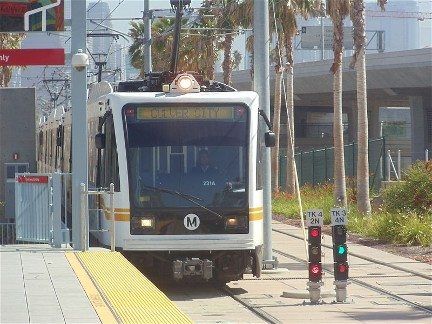

Even as transit agencies around the U.S. are cutting back on bus and rail service and raising fares, L.A. has embarked on this country’s most ambitious transit expansion — from 118 miles and 103 stations to 236 miles and 200 stations, a work program likely to generate an estimated 400,000 construction jobs.
For the first time ever in Southern California there are three lines under construction at the same time: Expo to Santa Monica, the Gold Line to Azusa and the Orange Line to Chatsworth. Add the Crenshaw Line and the downtown L.A. Regional Connector — utilities are being relocated now so construction can begin — and that’s five lines under construction.
Suddenly the world is looking at Los Angeles in a very different light. As Brookings Institution spokesman Adie Tomer told the Los Angeles Times:
“You have this archetype of L.A. as the highway city of America.
» Read more about: Honoring the Champions of Better Transit »


(Editor’s Note: This American Prospect post appeared on the eve of last Tuesday’s Wisconsin recall vote and, as such, only anticipates events that have since occurred. Still, Harold Meyerson offers some astute insights into why that recall effort ultimately failed.)
We don’t know the outcome of Tuesday’s gubernatorial election in Wisconsin, of course, but we do know this: Even if labor somehow manages to oust Republican Governor Scott Walker, the result will be nothing like the resounding repudiation that Ohio voters delivered last year in repealing that state’s anti-collective bargaining law pushed by an equally controversial GOP governor, John Kasich.
Why the difference? Kasich’s bill went beyond Walker’s in banning collective bargaining for cops and fire fighters, which proved a decidedly unpopular position, but that can hardly account for more than a fraction of the difference. Moreover, Wisconsin is generally regarded as a more liberal state than Ohio.


A June 4 Los Angeles Times article reported that hotel rates for business travelers in North America surged 9.3 percent in April, coming within 3 percent of the peak pre-recession rates in fall 2008. Rates for leisure travelers also rose 7.3 percent. The report also indicated that rates will continue to increase as demand continues to rise. This is a big deal because it means travel (both leisure and business) is heading in a positive direction since the 2008 recession hit. A city like Los Angeles – that hosted a record 26.9 million visitors last year – has a great opportunity to capture this rise in tourism. As the number one employer in L.A. County, home to pristine beaches, year-round beautiful weather and other attractions, tourism is poised to be one of the primary sectors that will lead Los Angeles out of the recession.
However, Los Angeles has some major work to do to be a leader in tourism and to develop a sustainable model that equally benefits the industry,
» Read more about: Travel's Up — Will Los Angeles Rise to the Occasion? »


The New Republic’s Richard Yeselson has a perceptive piece on that publication’s website that’s worth reading before our collective amnesia allows us to forget all about Governor Scott Walker’s recent electoral triumph.
“Not With a Bang, But a Whimper: The Long, Slow Death Spiral of America’s Labor Movement” is, as you might surmise, another in a series of post-Wisconsin election eulogies for American unions. Yet it’s much more, becoming a meditation on the place unions once occupied in the American imagination, both in politics and pop culture, and how their mention today barely elicits shrugs – even from many union members.
Yeselon likens unions to the typewriters that many writers of a certain age profess affection for but which none of us will ever return to using. “The problem isn’t that most people hate unions,” he writes.
» Read more about: WebHot: Why Unions Are Typewriters and Not Laptops »
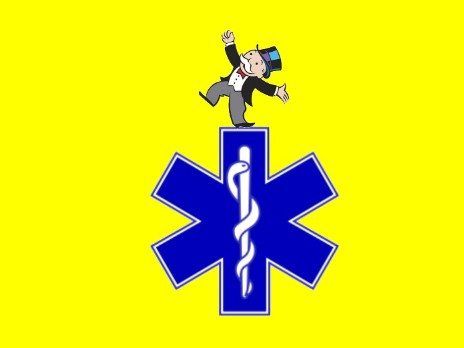

Now that Mitt Romney has clinched his position as the GOP presidential candidate, it’s time more than ever for Romney to avoid talking about the health care reform measure he created as Governor of Massachusetts.
You remember President Obama’s health-care legislation, the Affordable Care Act (ACA), the one that passed through Congress as smoothly as a kidney stone, thanks to shrill conservative opposition? Key parts of that act were lifted straight from Gov. Romney’s measure, but Mitt can’t afford that association, given the Right’s steady vilification of the plan as “socialism.” Which is why Romney has been running around attacking “Obamacare” instead.
Some Republicans are reading the polls and surfacing the idea of legislation to replace the Obama Administration’s ACA.
It seems their idea is to retain the most popular aspects–covering young people until they are 26, close the Medicare “doughnut hole” that requires patients to pay more for their medications and guarantee coverage despite pre-existing conditions.
» Read more about: Bad Medicine: Walmart's Rx for Employee Health Care »
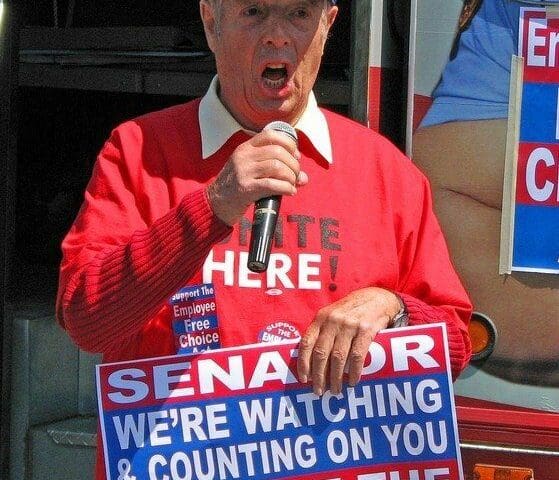

File this under the We Couldn’t Have Said It Better Ourselves Department: Op-ed columnist Joe Nocera articulated on the very respectable pages of the New York Times what many of us have known for years: Unions are good for the economy. Well, no – make that, unions are essential for the economy to work for everyone. Nocera, the famously contrarian business writer, talks about his picket-line-walking parents and his union-solid Rhode Island birthplace – but how, as a member of America’s post-war educated class, he came to view organized labor “with mild disdain.”
The madeleine that stokes his remembrance of union things past is The Great Divergence, Timothy Noah’s new book about income inequality. After confessing to holding an outlook once similar to Noah’s early views of labor as “a spent force,” Nocera now agrees with him that liberals have turned their backs on unions with terrible consequences.